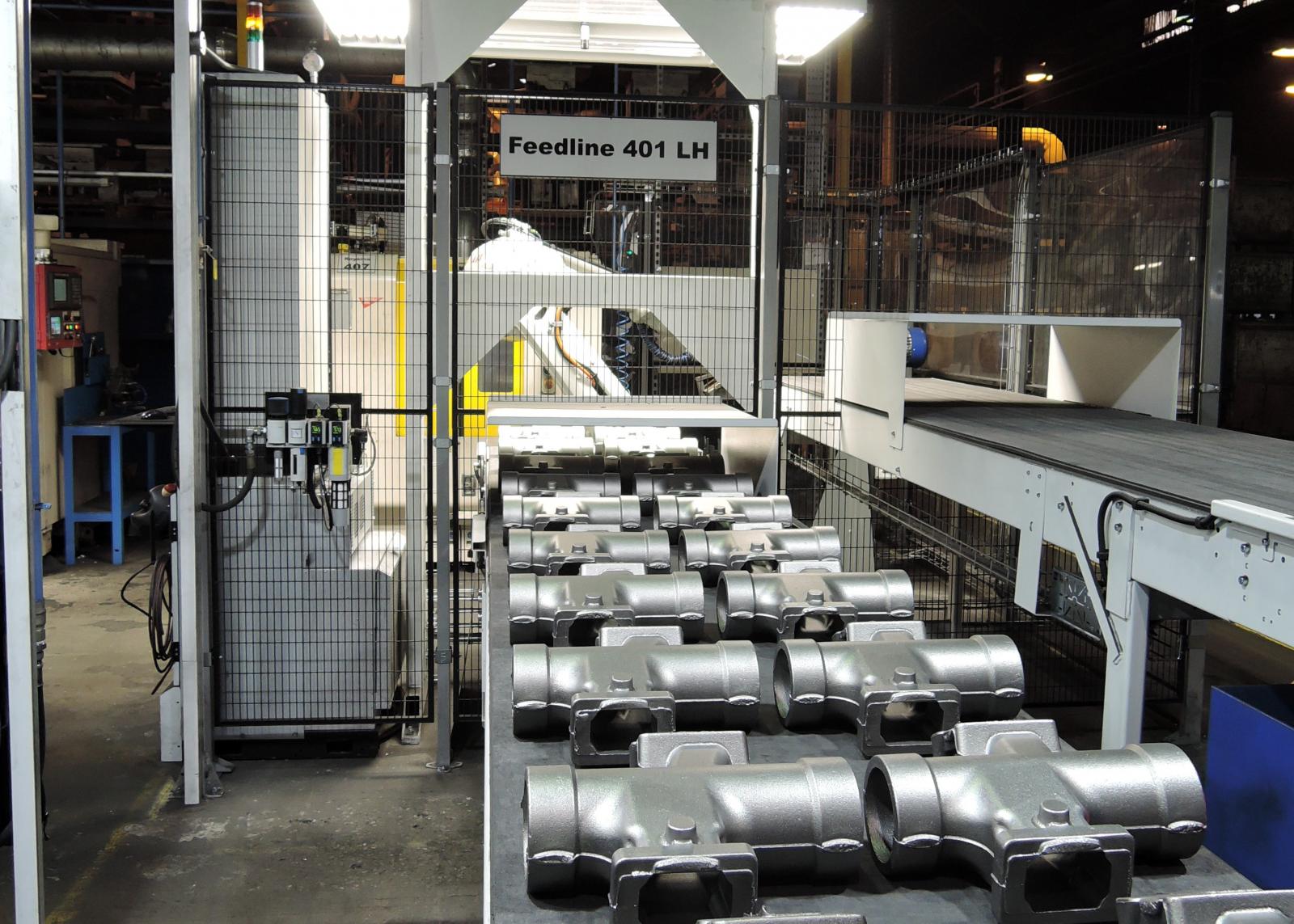
UK foundries report that there is hope for a return to pre-Covid capacity utilisation levels, despite the impact of the 2020 lockdown measures and the resulting decline in production activity.
This is the finding of the Cast Metals Federation (CMF) Business Impact Survey – 2020 Summary Report.
Despite the negative impacts of the pandemic including a fall in demand, the need to pause business operations for a short period and make additional investments to make workplaces Covid-secure, and prolonged supply chain disruptions, the mood remains positive amongst CMF members, with most reporting optimism for 2021.
With 2019 resulting in a significantly better year than recent years for the UK foundry sector, a decline in order books was anticipated during the early part of 2020, with concerns surrounding the outcome of ongoing Brexit trade deal negotiations. By March, the industry was also faced with responding to the global coronavirus pandemic and has subsequently responded with agility and resilience. The rapid change in volumes for the automotive and aerospace sectors saw order books plummet, specifically in the diecasting and investment casting sectors. Two lockdowns and the practicalities of operating facilities under imposed government social distance restrictions – reduced workforce, additional health & safety measures in working and common areas, supply chain disruptions etc. – have taken their toll.
The impact on business has been significant. Throughout the summer order books remained short, but by the autumn business levels were picking up, with the foundry sector well placed to respond. However, a resurgence in infection rates resulted in a second lockdown and a slowdown in demand as the year closed.
To counter the negative effects of the pandemic, CMF members have drawn on the assistance made available by various government schemes, such as CBIL loans for additional finance, deferred VAT payments and the coronavirus job retention scheme (CJRS), however this has not been without its own challenges.
CMF members report that by far the most significant support has been the CJRS, with a large number of members making use of the opportunity to furlough employees at different periods throughout the year for varying lengths of time. By the middle of 2020, the average percentage of employees on furlough was 30 per cent. This lifeline enabled Members to retain staff and meet customer demand, playing to the sector’s strength in terms of skills and responsiveness.
The scheme has allowed companies to maintain production levels when required, most notably in the latter half of the year particularly quarter 4 when orders increased. There were however some redundancies, but the levels were low compared to other sectors.
As expected, business disruption has taken many forms and is not merely confined to a downturn in customer demand. At the start of the crisis, many members significantly reduced or paused production to reorganise workplaces and implement social distancing measures, to enable operations to resume in a safe and efficient manner. In addition, procedures had to be adapted to accommodate operating with a reduced workforce to meet government guidelines and to support the shielding of vulnerable employees.
By the middle of the year, the industry had adapted to the new working procedures, but supply chain disruptions continued thanks in part to the lack of production capacity throughout the supply chain and logistical challenges. This was compounded by significant increases in costs for waste disposal, energy supplies (specifically in quarters 3 and 4) and insurance. From mid-quarter 2 through to the middle of quarter 3, some members reported problems with sourcing the required PPE/RPE because of an increase in demand from the NHS and social care sectors, thus reducing availability and driving up the cost. However, this temporary problem was mostly resolved by the end of quarter 3.
In some instances, customers also sought notable price reductions with the foundry industry thus squeezed at both ends.
Despite all of this and as the economy mounted a tentative recovery during quarters 3 and 4, CMF members reported improvements in order books.
There are of course exceptions and those businesses considered to be in an ‘essential’ supply chain – 40 per cent of foundries and 15 per cent of foundry suppliers – had a busy year, often with increased demand and the specific challenges that poses.
Towards the end of the year and the end of the Brexit transition period, a large proportion (73 per cent) of members said they were prepared for a new way of working as the UK exited the European Union. There was concern over the late timing of the publishing of final detailed guidance, but there is also “hope” that there would be increased opportunities for local content in supply chains.
Notably, despite a very testing year, no member has reported the need to close or scale-down operations in the longer term. Members also reported that on average they would return to 2019 capacity levels within ten to twelve months.
Speaking about the results of the Survey, CMF CEO Dr Pam Murrell FICME said: “Our sector has faced an enormous challenge during the past year and CMF members have responded as they always do, with remarkable resilience. Their optimism and robust handling of what has been a challenging year for all industries and society is a reflection of their competence and abilities. With industry gearing up throughout the Brexit transition period and awaiting trade deal news, 2020 was set to provide certain complexities, but nobody could have predicted a global pandemic and what that would throw into the mix. However, the wheels of industry continue to turn and CMF members have an important role to play in contributing to the UK’s GDP and they haven’t disappointed. Our sector has ‘dug deep’ and found solutions during the harshest of conditions and we can be particularly proud of that.”
Contact: Dr Pam Murrell FICME, Tel: +44 (0) 121 809 3500, email: [email protected]
Photo: Robotic fettling courtesy Castings PLC